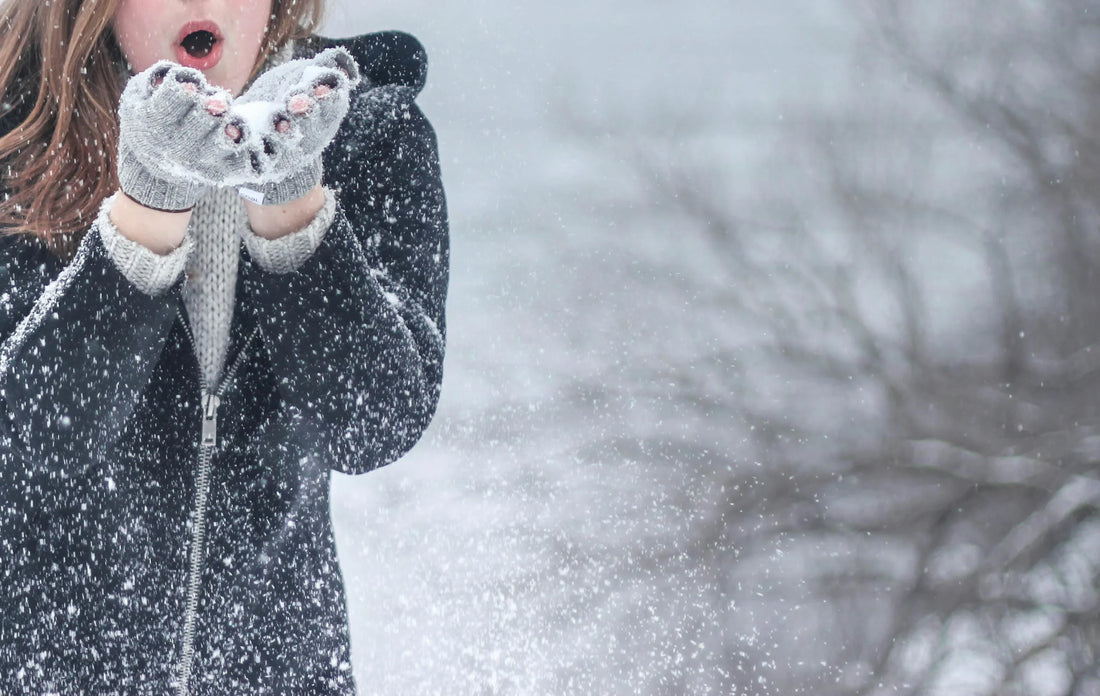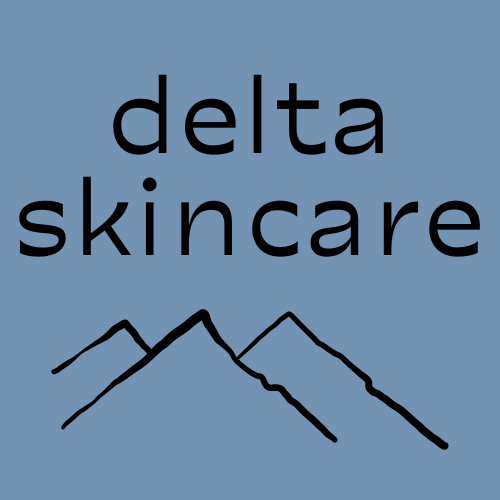
Battling the Alberta Chill: Your Ultimate Guide to Winter Skincare (and How to Fix That Dry Skin)
When the Chinook winds settle down and the true Alberta winter descends, it brings with it a host of challenges—not just for your commute, but for your skin. The frigid outdoor temperatures, coupled with the relentlessly dry heat indoors, create a perfect storm for skin dehydration, irritation, and discomfort. For those of us in Calgary and the surrounding areas, adopting a specialized winter skincare tips Alberta routine is not just a luxury; it’s a necessity for maintaining a healthy, comfortable, and radiant complexion until spring.
At Delta Skincare YYC, we understand the unique demands of a cold, dry climate. This comprehensive guide will explain exactly how the harsh winter environment affects your skin and, more importantly, give you practical, product-focused solutions to not only survive the season but thrive in it.
The Cold, Hard Truth: How Winter Weather Damages Your Skin
The primary culprit behind winter skin woes is a dramatic and prolonged lack of moisture, or humidity.
1. The Moisture-Stripping Duo: Low Humidity and Indoor Heat
Alberta winters are characterized by extremely low outdoor humidity. When you step outside, the cold, dry air actively pulls moisture from your skin. When you move indoors, the heating systems—furnaces, fireplaces, etc.—further deplete the air's humidity, creating an equally dry environment.
Your skin's natural protective barrier, a layer of lipids and oils, is designed to lock moisture in and keep irritants out. The constant back-and-forth between the cold, dry outside air and the warm, dry inside air compromises this barrier. This leads to:
-
Increased Transepidermal Water Loss (TEWL): Water literally evaporates from your skin at an accelerated rate.
-
Dryness and Flakiness: Your skin loses its suppleness, becoming tight, rough, and flaky.
-
Sensitivity and Irritation: A damaged barrier is more susceptible to redness, itchiness, and flare-ups of conditions like eczema, rosacea, and psoriasis.
2. The Freezing Effect of the Elements
Beyond dryness, the bitter cold and biting wind on the Prairies can cause:
-
Vasoconstriction: In extreme cold, blood vessels near the skin's surface constrict to conserve body heat, reducing blood flow to the skin. This can deprive your skin of the necessary oxygen and nutrients, leading to a duller complexion.
-
Windburn and Chapping: Exposed skin on your face and hands is vulnerable to the abrasive effects of the wind, causing severe irritation and cracking.
-
Hot Water Damage: While a steaming hot shower feels amazing after being outside, hot water strips your skin of its precious natural oils even faster than a gentle cleanse.
Your Survival Guide: Essential Winter Skincare Tips Alberta
To combat the season's effects, you need to adjust your routine to focus on three core principles: Gentle Cleansing, Deep Hydration, and Barrier Protection.
Step 1: Rethink Your Cleansing Routine
The single most important change you can make is to stop stripping your skin's natural oils.
-
Switch to a Gentle, Hydrating Cleanser: Ditch foaming cleansers with harsh surfactants, alcohol, or strong fragrances. Opt for a creamy, milky, or oil-based cleanser that cleans without leaving your skin feeling tight or dry.
-
Lukewarm Showers Only: As tempting as it is, avoid scalding hot water in the shower or for washing your face. Use lukewarm water and limit your bathing time to prevent further drying.
-
Incorporate Shea Butter Soap for the Body: For the rest of your body, which is just as prone to dryness, switch to a nourishing soap like one formulated with shea butter. Shea butter is rich in fatty acids and vitamins A and E. When used in soap, it cleanses while simultaneously depositing a layer of moisture, helping to maintain the skin’s barrier and reduce that irritating winter itch.
Check out our handmade shea butter soap here.
Step 2: Lock in Moisture with a Heavy Hitter
Your summer lotion won't cut it. In the winter, you need a thicker, richer formula to provide a strong, occlusive barrier.
-
Choose a Cream or Ointment: Look for moisturizers labeled as a cream or ointment (rather than a thin lotion). These contain a higher concentration of oils, which are more effective at sealing in moisture.
-
Key Ingredients: Seek out powerful humectants (which draw water into the skin) and emollients/occlusives (which lock it in). Ingredients to look for include:
- Glycerin and Shea Butter: Excellent occlusives to physically block moisture loss.
-
The Damp Skin Rule: Always apply your rich moisturizer or body cream immediately after bathing or washing your face, while your skin is still slightly damp. This traps the water on the skin's surface, ensuring maximum hydration.
Check out our handmade glycerin and shea butter lotion here.
Step 3: Soothe Irritation and Itchiness
Dry, irritated winter skin often becomes itchy and inflamed. This is where an ultra-soothing ingredient can make all the difference.
-
The Power of Oatmeal Lotion: For dry, itchy, or rash-prone areas on your body, an oatmeal lotion is a true winter hero. Colloidal oatmeal, finely ground oat flour, is clinically proven to soothe, moisturize, and calm irritated skin. Its anti-inflammatory properties and ability to form a protective film on the skin quickly alleviate itchiness, scaling, and flaking. Keep a fragrance-free oatmeal lotion on hand to treat any patches of winter dryness or "crepey" skin on your arms and legs.
Check out our handmade oatmeal lotion here.
Step 4: Protect Your Exposed Extremities
Your hands and lips are constantly exposed to the elements and are the first to show signs of cracking and chapping.
-
Hands: Wear gloves or mittens outside—no excuses! Apply a thick hand cream after every hand wash, and consider a barrier cream on top before heading out.
-
Lips: Your Coconut Oil Lip Balm Solution: For chapped and cracked lips, a simple coconut oil lip balm is one of the most effective remedies. Coconut oil is a natural emollient that provides intense moisture and creates a protective barrier against the cold. It also contains anti-inflammatory properties to soothe swelling and can help protect against infection in severely cracked lips. Look for a natural lip balm with coconut oil, beeswax, or shea butter for a thick, long-lasting protective layer. Apply it religiously, especially before bed and before venturing outside.
Check out our handmade coconut oil lip balm here.
Step 5: Environmental and Lifestyle Adjustments
Skincare isn't just about what you put on your skin; it's about your environment and habits.
-
Get a Humidifier: This is non-negotiable in an Alberta winter. Indoor heating drastically reduces humidity. Place a cool-mist humidifier in your bedroom to restore moisture to the air while you sleep. Aim for an indoor humidity level between 30% and 50%.
-
Hydrate from Within: You might not feel as thirsty as in the summer, but proper hydration is vital for skin health. Drink plenty of water throughout the day.
-
Don't Skip the Sunscreen (Yes, Really): Even on cloudy, freezing days, UV rays penetrate the atmosphere and reflect off snow, intensifying your exposure. Continue to use a broad-spectrum sunscreen (SPF 30+) as the final step of your morning facial routine.
-
Cover Up: Protect your skin from the direct assault of the wind and cold. Always wear a scarf over your face, a warm toque, and gloves/mittens when spending time outdoors.
Your Delta Skincare YYC Winter Skincare Checklist
Adjusting your routine for the Calgary winter can seem daunting, but with these focused winter skincare tips Alberta, you can keep your skin healthy, hydrated, and glowing all season long. Remember to:
-
Cleanse Gently: Switch to a cream or oil cleanser and use lukewarm water.
-
Moisturize Richly: Use a thicker cream or ointment with ceramides and hyaluronic acid on damp skin.
-
Soothe Itchiness: Use an oatmeal lotion for instant relief from dryness and irritation on your body.
-
Protect Your Pout: Keep a coconut oil lip balm handy and apply it often.
-
Bathe Smart: Swap to a gentle, moisturizing shea butter soap for your body and limit shower time.
-
Use a Humidifier: Add moisture back into your indoor air.
If you find that dry, irritated skin persists despite these changes, it may be a sign of a deeper barrier compromise or a flare-up of an underlying skin condition. At Delta Skincare YYC, our expert team can provide a full skin analysis and recommend medical-grade products and in-clinic treatments tailored to repairing your skin's barrier and restoring its health and comfort, ensuring your complexion is ready for whatever the unpredictable Alberta winter throws at it.
Ready to beat the winter skin blues? Shop our collection here.
